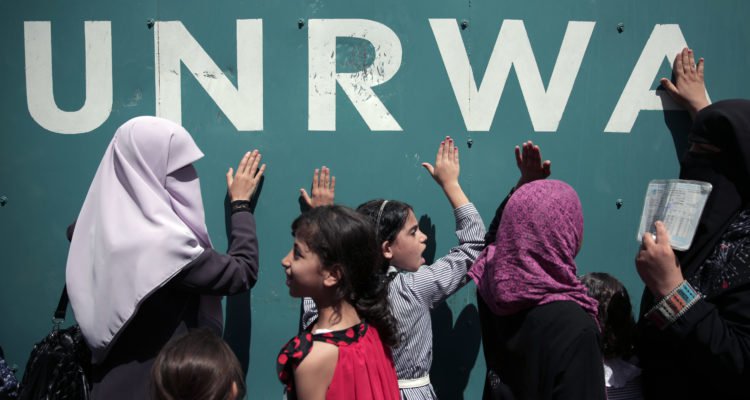While the United States has yet to cut off financial aid to the United Nations Relief and Works Agency (UNRWA), the UN agency that funds “Palestinian refugees” has already begun a media campaign warning of the dire consequences if and when American assistance is cut back or halted. The agency has issued a statement saying that the loss of significant funding from its largest donor could be “catastrophic.”
Last week US President Donald Trump announced that the US may withhold future aid payments to UNRWA over what he called the Palestinians’ unwillingness to talk peace with Israel. While the State Department is still saying that “no decision” had been made on a reduction in payments, UNRWA is taking the president’s threat very seriously.
The United States donated nearly $370 last year which is a third of its budget, and UNRWA spokesman Chris Gunness issued a statement saying, “The human impact of losing significant funding could be catastrophic in the real lives of real people whom the UN is mandated to protect.”
Don’t believe the hype?
David Bedein, a leading Israeli critic of UNRWA who has written extensively on the issue for the Center for Near East Policy Research said he is skeptical of “UNRWA hype.” Bedein told World Israel News (WIN), “If the US cuts funding others will quickly make up for it.”
Bedein says he is opposed to unilateral action and suggests that the US “condition funding” and do so in coordination with other donors. “One idea could be to stop UNRWA funding for education until they prevent Palestinian incitement in UNRWA run schools,” said Bedein.
According to Bedein one of the biggest problems with UNRWA is its “total lack of transparency and accountability” with much of the donations going for things other than aide for the needy. “As soon as the US actually pulls funding we can expect huge media hype, with claims of starvation and people dying in UNRWA hospitals.”
UNRWA: Part of the problem or part of the solution?
UNRWA was established following Israel’s War of Independence in 1948, when tens of thousands of Palestinians left their pre-war homes. The UN General Assembly has repeatedly renewed UNRWA’s mandate, with the original refugee camps now mostly concrete slums housing the descendants of of original “refugees,” who receive agency handouts including health care, education and food. The largest populations receiving UNRWA services are in Gaza, Judea and Samaria, Jordan and Lebanon.
Prime Minister Benjamin Netanyahu accuses UNRWA of perpetuating the “refugee problem” by helping to promote the unrealistic dream that these people have the “right to return” to long-lost properties in what is now Israel.
Last week Netanyahu told the foreign media, “UNRWA is part of the problem, not part of the solution. Palestinians are the only group served by a specific refugee agency, and the only group where refugee status is extended to successive generations. UNRWA should be abolished and its responsibilities taken over by the main UN refugee agency.”









